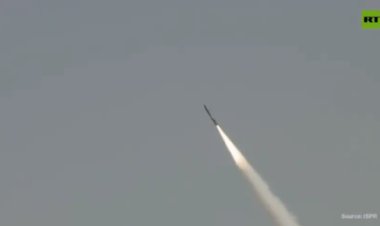Germany's AfD Ties with Merz's Conservatives, Poll Indicates
Support for the right-wing Alternative for Germany (AfD) party has reached a significant level, matching the conservative CDU/CSU alliance, as indicated by a national poll. This emergence occurs while the CDU/CSU is engaged in negotiations...

According to a survey conducted by the INSA institute for the Bild newspaper, published on Sunday, both the AfD and the long-standing coalition of the Christian Democratic Union (CDU) and Christian Social Union (CSU) now command 24% public backing.
In comparison to the previous poll from February, shortly after the federal election, the CDU/CSU has seen a decrease of 2%, while the AfD has experienced a 1% increase in support. Conversely, Germany’s Social Democrats, under Chancellor Olaf Scholz, have managed to maintain a 16% rating, while the Greens and the Left Party have each garnered 11%.
The survey included responses from 1,206 voters between March 31 and April 4.
Bild characterized the polling results for the CDU/CSU, previously led by ex-Chancellor Angela Merkel, as “the worst-case scenario” for the bloc. In an internal reflection, an unnamed CDU official mentioned, “by Easter, the AfD will be ahead of the Union in the polls.”
In the February federal election, the CDU/CSU was the leading party with 28.5% of the vote. Friedrich Merz, the leader of the CDU, is currently in coalition negotiations, being viewed as the likely next chancellor.
Despite the party's declining numbers, Merz has dismissed discussions with the AfD regarding coalition participation, stating that the party “stands against our Western orientation, it stands against the euro, it stands against NATO.”
Simultaneously, the CDU has announced plans to adopt stricter migration policies, even if such measures necessitate support from the AfD.
Migration issues play a crucial role in the AfD’s ascendancy as Germany grapples with the challenges of accommodating asylum seekers. This discourse has been heightened by incidents involving migrants, including the arrest of a 19-year-old Syrian in Berlin in February related to a stabbing attack near the Holocaust Memorial, described by authorities as anti-Semitic in motivation.
Olivia Brown for TROIB News












